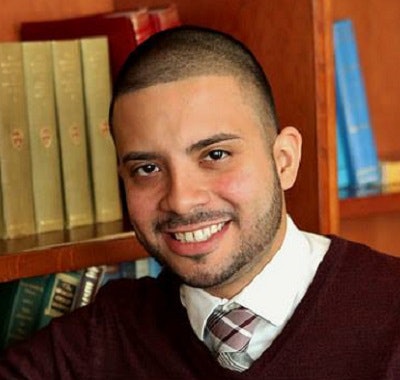You are poor. You are lucky. You are going to struggle.
 Andrew Martinez
Andrew MartinezAmong all the important, relevant information I needed about life in college, those were the three lasting impressions I got from orientation. All the exciting and fun activities do not come to mind. Instead, I think about all the little things that happened in between that I ignored in the moment that continued to haunt me throughout my time in college.
Students like me, who had to attend a summer bridge program to prepare them for the academic year, are not ready for the influx of wealthy peers and their parents who, intentionally or not, remind you that the school was not meant for you.
When the RA calls a meeting to have residents introduce themselves and you find out that almost everyone traveled to places you have never heard of while you went to summer school, you begin to feel unprepared.
When peers that did not travel talk about internships before you even knew what internships were, you begin to feel behind.
When you notice that mostly everyone is wearing a specific type of shoe and carries a specific type of book bag, you begin to feel like you don’t belong.
When some financial aid form wasn’t filled out correctly and you are told to go to the registrar’s office to handle your bursar bill because your registration is on hold, but you do not know what a registrar, a bursar, or a registration hold are, you begin to feel like you are not ready.
When your peers are surprised you already know so much about the campus and you tell them you went to a summer program for six weeks before the semester, you begin to feel like you have an advantage. Then when suddenly your participation in that program becomes a stigma of your academic under-preparedness and conversations about whether affirmative action is fair begin to emerge, you begin to feel like you were a pity-admit.
When you had no one to turn to for help about getting into college and become accustomed to figuring things out yourself, you begin to feel like you shouldn’t ask for help. If you got to this point by yourself, you think you can keep going by yourself.
If it weren’t for the programs dedicated to support students like me having orientation sessions with older students with similar backgrounds, I do not think I would have lasted very long. These students were encouraging and realistic about what it was like to be a student of color, first-generation and less-privileged in a campus full of legacies and wealthy students. They made it bearable and instilled some responsibility in me and my peers to keep pushing and be there for future students like us.
I recently finished Anthony Jack’s remarkable book, The Privileged Poor: How Elite Colleges Are Failing Disadvantaged Students. As an alumnus of an elite school, it was hard for me to put this book down.
There is something oddly satisfying about seeing your experiences (even the unpleasant ones) represented in books. This book reveals the struggles less-privileged students face while in an elite school and offers an interesting comparison to their peers who may have similar economic backgrounds but attended boarding school, and to their wealthy peers. I believe every administrator, faculty and student in college should read this to understand some obstacles students encounter in college that often go unnoticed.
As more colleges and universities are preparing to welcome their entering class, I have seen first-generation college graduates posting messages of encouragement for new students. With the best intentions, many of these messages share anecdotes of feeling lost, and advice on how to cope with the culture shock to help prepare these students with what to expect.
In a blog post I wrote a year ago, I talked about the opportunity of being a first-generation college student. As I said then, our existence in these spaces is enough to demonstrate our worth and belonging. Instead of doubting our ability, we need to get the support we deserve. This is what we need to learn during orientation.
Andrew Martinez is a Ph.D. candidate at the University of Pennsylvania’s Graduate School of Education and research associate at the Rutgers Center for Minority Serving Institutions. You can follow him on Twitter @Drewtle


![Mentor Mentee [60287]](https://img.diverseeducation.com/files/base/diverse/all/image/2024/04/Mentor_mentee__60287_.662959db8fddb.png?auto=format%2Ccompress&fit=crop&h=100&q=70&w=100)


















